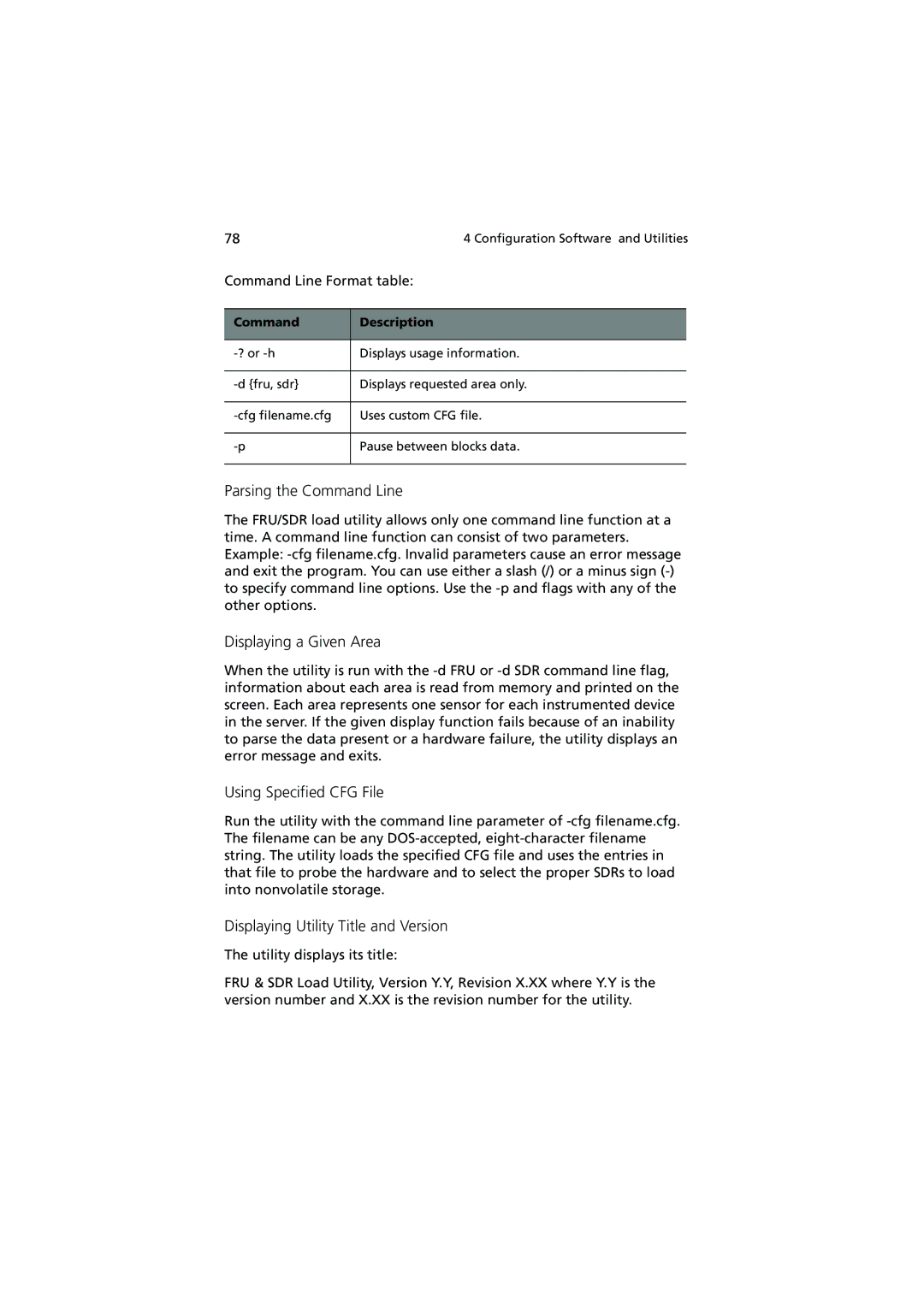78 | 4 Configuration Software and Utilities |
Command Line Format table: |
| | |
Command | Description |
| | |
-? or -h | Displays usage information. |
| | |
-d {fru, sdr} | Displays requested area only. |
| | |
-cfg filename.cfg | Uses custom CFG file. |
| | |
-p | Pause between blocks data. |
| | |
Parsing the Command Line
The FRU/SDR load utility allows only one command line function at a time. A command line function can consist of two parameters. Example: -cfg filename.cfg. Invalid parameters cause an error message and exit the program. You can use either a slash (/) or a minus sign (-) to specify command line options. Use the -p and flags with any of the other options.
Displaying a Given Area
When the utility is run with the -d FRU or -d SDR command line flag, information about each area is read from memory and printed on the screen. Each area represents one sensor for each instrumented device in the server. If the given display function fails because of an inability to parse the data present or a hardware failure, the utility displays an error message and exits.
Using Specified CFG File
Run the utility with the command line parameter of -cfg filename.cfg. The filename can be any DOS-accepted, eight-character filename string. The utility loads the specified CFG file and uses the entries in that file to probe the hardware and to select the proper SDRs to load into nonvolatile storage.
Displaying Utility Title and Version
The utility displays its title:
FRU & SDR Load Utility, Version Y.Y, Revision X.XX where Y.Y is the version number and X.XX is the revision number for the utility.
